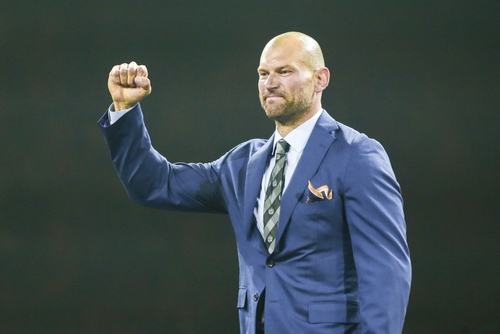


Hall of Fame Tips for Presidential Candidates
By Merrie Spaeth for the Wall Street Journal
When the National Football League inducted a new class of Hall of Famers on Aug. 5, one thing was conspicuously missing: bad speeches. For years the ceremony had been known for them. Winners droned on with a laundry list of thank-yous, reminiscing with obscure anecdotes and humorless jokes. This year, speeches were short, scripted and sincere. Inductee Joe Thomas, a former Cleveland Browns offensive tackle, was quoted as saying: “Anyone who doesn’t use a speech coach in this situation is an idiot.” From his lips to the ears of senior executives, politicians and maybe even presidential candidates.
Many 2024 hopefuls are violating President Reagan’s 11th Commandment. It wasn’t “Don’t speak ill of other Republicans” but rather “Thou shall not bore other people.” While Donald Trump continues to excite with news-cycle busting indictments and quips, the rest of the field would do well to follow a different game plan. With the first GOP primary debate two weeks away, now is a good time to review some of the most common mistakes executives make and how to improve.
First, speeches should be governed by the time available, not the material to be covered or the information to be transmitted. This is the spoken manifestation of the oft-quoted Peter Principle about people rising to their level of incompetence. Presentations expand to or just beyond the time scheduled. Should they be scripted? Yes and no. They should be rehearsed. I frequently hear, “I’m too busy,” or “I already know it.” To that, I remind clients that my old boss— Ronald Reagan —rehearsed. If he could find time . . .
For more, click here.
Ms. Spaeth, a Dallas communications consultant, was President Reagan’s director of media relations, 1983-85.